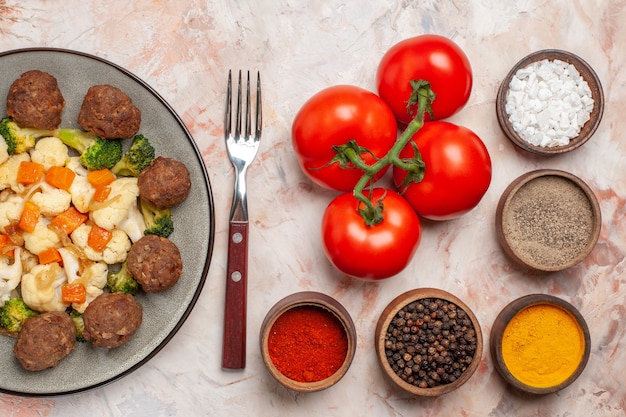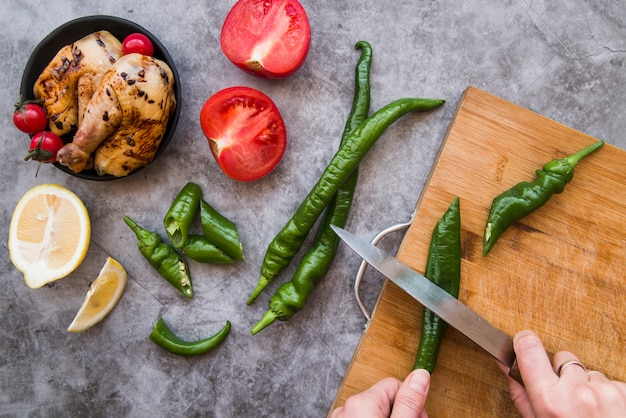Is roasting vegetables with olive oil unhealthy?
In recent years, there has been a growing interest in healthy eating and incorporating more vegetables into our diets. One cooking method that has gained popularity is roasting vegetables with olive oil. However, there have been concerns raised about the healthiness of this cooking technique. In this article, we will explore whether roasting vegetables with olive oil is truly unhealthy or if it can be part of a nutritious diet.
The benefits of roasting vegetables
Roasting vegetables has several benefits that make it a popular cooking method. Firstly, roasting brings out the natural flavors of the vegetables, resulting in a delicious taste and satisfying texture. The high heat of the oven caramelizes the sugars in the vegetables, giving them a slightly sweet and nutty flavor.
Furthermore, roasting vegetables helps to retain their nutritional value. Unlike boiling, which can cause the loss of water-soluble vitamins, roasting vegetables preserves the nutrients. This is particularly true for fat-soluble vitamins like vitamin A, vitamin E, and beta-carotene, as they are better absorbed by the body when consumed with dietary fats.
The role of olive oil
Olive oil is commonly used in roasting vegetables due to its high smoke point and rich flavor. It adds a luxurious richness to the dish and helps prevent the vegetables from drying out in the oven. Additionally, olive oil is a source of monounsaturated fats, which are considered heart-healthy fats.
While olive oil does contain calories, it is important to remember that it is a natural fat and not all fats are created equal. The monounsaturated fats in olive oil have been associated with numerous health benefits, including reducing inflammation, improving heart health, and promoting satiety.
Considerations for healthy roasting
While roasting vegetables with olive oil can be a healthy cooking method, there are a few considerations to keep in mind:
- Use olive oil in moderation: Although olive oil is a healthy fat, it is still high in calories. Be mindful of the amount you use to avoid excessive calorie intake.
- Choose extra virgin olive oil: Extra virgin olive oil is less refined and retains more beneficial compounds compared to refined olive oil.
- Watch the cooking temperature: Roasting vegetables at a high temperature (around 400°F/200°C) can produce crispy results, but avoid charring or burning them, as this can create potentially harmful substances.
- Pair with a balanced diet: While roasted vegetables are nutritious, it is important to incorporate them into a balanced diet that includes a variety of other food groups.
Expert tip: “Roasting vegetables with olive oil can be a healthy and delicious way to enjoy your daily dose of veggies. Just remember to use olive oil in moderation and monitor the cooking temperature to avoid burning.”
In conclusion, roasting vegetables with olive oil can be a healthy cooking method when done correctly. It brings out the natural flavors of the vegetables and helps retain their nutritional value. By using olive oil in moderation and following proper roasting techniques, you can enjoy a tasty and nutritious dish that contributes to a well-rounded diet.
Is avocado oil better than olive oil for roasting vegetables?
When it comes to roasting vegetables, oil plays a crucial role in enhancing their flavor and achieving the desired texture. While olive oil is a popular choice for cooking, an alternative that has gained attention in recent years is avocado oil. Both oils have their unique qualities, but which one is better for roasting vegetables? Let’s take a closer look.
Smoke Point
The smoke point of an oil is the temperature at which it starts to smoke and break down, resulting in a burnt taste and the release of harmful compounds. Avocado oil has a higher smoke point (around 520°F) compared to olive oil (around 375°F), making it more suitable for high-heat cooking methods like roasting vegetables.
Flavor and Nutritional Profile
Olive oil is known for its distinct and robust flavor, whereas avocado oil has a more neutral taste. The choice between the two comes down to personal preference and the specific flavors you want to enhance in your roasted vegetables.
In terms of nutrition, both oils offer health benefits. Olive oil is rich in heart-healthy monounsaturated fats and antioxidants, while avocado oil contains vitamins E, K, and omega-9 fatty acids.
Sustainability and Availability
Olives are grown extensively in Mediterranean countries, whereas avocados primarily come from Central and South America. If you are concerned about supporting local or sustainable agriculture, consider choosing oils produced closer to home.
Is it better to roast with olive oil or vegetable oil?
When it comes to roasting, choosing the right oil can make a significant difference in taste and health benefits. In the UK, two popular options for roasting are olive oil and vegetable oil. Let’s compare these two oils to determine which is better for roasting.
1. Olive Oil
Olive oil is well-known for its health benefits and rich flavor. It contains heart-healthy monounsaturated fats and antioxidants that can lower the risk of heart disease and inflammation. When roasting with olive oil, it imparts a distinct flavor to the food, adding a Mediterranean touch to your dishes.
Benefits of roasting with olive oil:
- Enhances the flavor of roasted vegetables and meats
- Provides healthful monounsaturated fats
- Contains antioxidants
“Olive oil adds a unique taste and richness to roast potatoes, making them crispy on the outside and fluffy on the inside.” – Chef John
2. Vegetable Oil
Vegetable oils, such as sunflower, canola, or rapeseed oil, are commonly used in the UK for roasting due to their neutral flavor profile. These oils have a higher smoke point compared to olive oil, making them suitable for high-temperature cooking methods like roasting.
Benefits of roasting with vegetable oil:
- Has a neutral taste, allowing other flavors to shine
- Higher smoke point, ideal for high-temperature roasting
- Available in various types, catering to individual preferences
“When it comes to roasting, vegetable oil is a versatile option that lets the natural flavors of the ingredients shine through.” – Food Blogger Sarah
Ultimately, the choice between olive oil and vegetable oil for roasting depends on personal preference and desired flavor profile. While olive oil adds its unique taste and health benefits, vegetable oils provide a neutral base and higher smoke point. Experiment with both oils to find the perfect fit for your roast dishes.
Is olive oil or extra virgin better for roasting vegetables?
When it comes to roasting vegetables, one of the most important decisions you have to make is which type of oil to use. Olive oil and extra virgin olive oil are both popular choices, but which one is better for roasting vegetables? Let’s take a closer look.
Olive Oil
Olive oil is a staple in many kitchens, known for its versatility and health benefits. It is extracted from olives by pressing or centrifuging, without the use of chemicals. Olive oil has a higher smoke point compared to extra virgin olive oil, making it suitable for high-heat cooking methods like roasting vegetables.
With its mild flavor and light consistency, olive oil allows the natural flavors of the vegetables to shine through. It also helps to retain moisture and create a crispy texture on the outside of the vegetables.
Extra Virgin Olive Oil
Extra virgin olive oil is considered the highest quality olive oil, made from the first cold pressing of olives. It retains more natural antioxidants and nutrients compared to regular olive oil. However, it has a lower smoke point, which may result in a less desirable taste and the release of harmful compounds when used for roasting at high temperatures.
Using extra virgin olive oil for roasting vegetables is best suited for lower temperature cooking methods, such as sautéing or drizzling over already cooked vegetables.
The Verdict
In general, **both olive oil and extra virgin olive oil can be used for roasting vegetables**, but it ultimately depends on the specific circumstances. If you are roasting at high temperatures (around 425°F/220°C or above), regular olive oil would be the better choice due to its higher smoke point. However, if you are roasting at lower temperatures or if you want to enjoy the distinct flavor of extra virgin olive oil, feel free to use it.
“For high-heat cooking like roasting vegetables, opt for olive oil with its higher smoke point.”
Regardless of your choice, remember to use the oil sparingly to avoid excessive greasiness and to allow the flavors of the vegetables to shine. It’s always a good idea to experiment and find what works best for your personal taste preferences.
Here’s a simple comparison table to summarize the key differences between olive oil and extra virgin olive oil:
| Olive Oil | Extra Virgin Olive Oil | |
|---|---|---|
| Smoke Point | High | Low |
| Flavor | Mild | Distinctive |
| Best Suited for | High-heat cooking | Low-heat cooking, dressings |
| Processing | Pressed or centrifuged | First cold pressing |
In conclusion, both olive oil and extra virgin olive oil have their own unique qualities and can be used for roasting vegetables depending on the cooking temperature and desired flavor profile. Don’t be afraid to experiment and find your preferred choice!
Conclusion
Both avocado oil and olive oil can be excellent choices for roasting vegetables, depending on your preferences and cooking style. The higher smoke point of avocado oil makes it more suitable for high-heat cooking methods like roasting, while olive oil offers a distinct flavor profile. Ultimately, it’s a matter of personal taste and the specific flavors you want to achieve in your dishes. Experiment with both oils to find your favorite!



